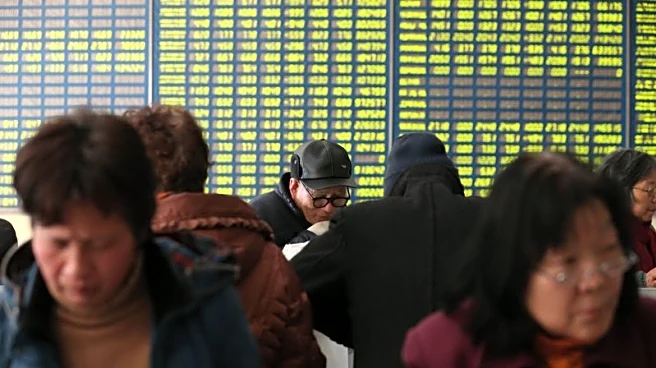By Jiaxing Li
HONG KONG (Reuters) -China's outstanding margin financing has reached a new record high of 2.29 trillion yuan ($320 billion), surpassing the previous peak set a decade ago, as investors ramp
up leveraged bets to join a liquidity-fuelled stock market rally.
WHY IT'S IMPORTANT
Outstanding margin financing - money investors borrow to buy stocks - is a key gauge of sentiment and leverage level. Market participants closely monitor this metric for signs of excessive speculation to assess the underlying health and sustainability of the rally.
While rising leverage can boost liquidity to drive further gains, it also heightens the risk of excessive speculation, which could amplify market volatility and trigger sharper corrections if sentiment shifts.
CONTEXT
China's stock market has been on a tear, with the benchmark Shanghai Composite Index surging as much as 27% since April to 10-year highs.
This remarkable rally stands in sharp contrast to the country's underlying economic fundamentals, with weak domestic consumer demand, a protracted property crisis, and trade tensions with the United States hampering growth.
BY THE NUMBERS
Outstanding margin financing reached 2.29 trillion yuan on Monday, surpassing the previous record high of 2.27 trillion yuan seen in 2015. Back then, illegal margin lending fuelled a dramatic bull run and crash, prompting a regulatory crackdown later that year.
Still, margin financing now only accounts for 2.3% of China's total floating market cap, much lower than a peak of 4.7% a decade ago, when China's stock market was much smaller.
KEY QUOTE
The pace of leverage surges "looks stretched with some component of fear of missing out", but the overall market valuation remains reasonable, suggesting it's not yet excessive euphoria, said Wee Khoon Chong, APAC Macro Strategist at BNY.
"I think the rally is really fuelled by optimism towards the new economy, AI and tech... If the current stock market rally can resuscitate wider optimism across the rest of the economy, then there would be a lot of upside room ahead."
($1 = 7.1529 Chinese yuan renminbi)
(Reporting by Jiaxing Li in Hong KongEditing by Shri Navaratnam)









